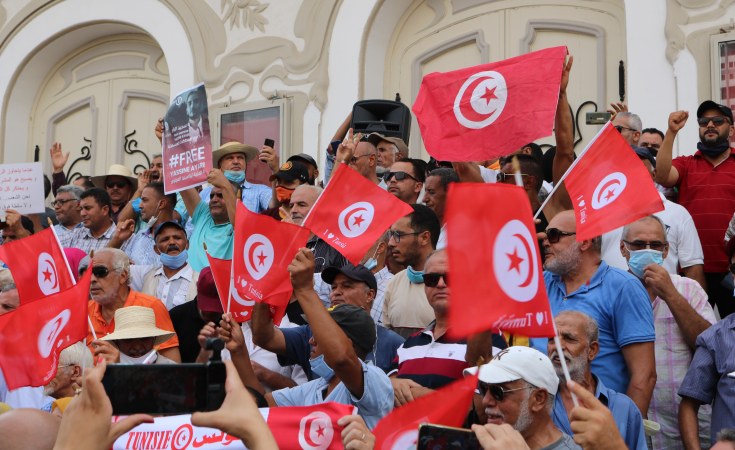Harare — Tunisia's President Kais Saied has denounced racism barely 10 days after declaring a crackdown on illegal immigration and using language the African Union deemed to be "racialized hate speech".
During a statement on February 21, Saied called for the expulsion of all illegal immigrants, describing migration as a plot to alter Tunisia's demographics so that it becomes more African and less Arab, Reuters reports.
"The undeclared goal of the successive waves of illegal immigration is to consider Tunisia a purely African country that has no affiliation to the Arab and Islamic nations," he is reported to have said.
Since Saied made his incendiary, racist speech in which he claimed that irregular migration from other parts of Africa was a component of an international plan to change Tunisia's character, black immigrants to Tunisia have been on edge. With a lengthy history in the nation and making up 10% to 15% of the population, rights organizations have complained that Tunisia has not done enough to combat racism.
In the days and weeks since, migrant families claim that they have been evicted from their homes, officials have taken children from nurseries, and entire neighborhoods have been raided. Sub-Saharan African workers are reportedly losing their jobs, while black Tunisians are also targeted in racist attacks.
Saied's speech was the most recent in a string of attacks on democratic norms. He took power in 2019 and has been on a power grab ever since, sacking the government, freezing then dissolving parliament, and pushing through a new constitution granting him nearly unlimited powers. Tunisia's security forces have arrested prominent opposition figures and journalists in recent months, as Saied's rhetoric has become increasingly authoritarian, raising concerns among rights groups and international observers that the country's fragile democratic progress since the Arab Spring is being obliterated.
Tunisia is a major transit point for migrants and refugees attempting to cross the Mediterranean to Europe, with an increasing number of Tunisians and people from other African countries passing through.


